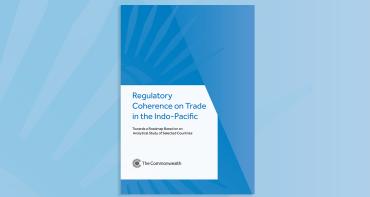Senior officials and trade associations from East Africa will meet to consider introducing an international trade system to enable freer transportation of goods.
Senior officials and trade associations from East Africa will meet to consider introducing an international trade system to enable freer transportation of goods between neighbouring countries.
Convened by the Commonwealth Secretariat, the meeting will take place from 8-9 June 2015 in Arusha, Tanzania. Participants will address national and regional issues relating to implementing the Transports Internationaux Routiers (TIR) system in East Africa.
Established by the United Nations Economic Commission for Europe in 1975, the TIR system was designed to allow unhindered transport of goods between countries mainly by road, replacing time consuming border checks with the TIR carnet – a universal permit that complies with international standards and provides customs officials with necessary guarantees.
Describing the meeting as an important initiative to facilitate trade in East Africa, the Commonwealth Secretariat’s Deputy Secretary-General Deodat Maharaj stressed that formalising trade facilitating measures would boost economic growth in the region, but greater collaboration would be necessary to achieve this. Mr Maharaj also underscored the need for building capacity to effectively participate in global trade.
He said: “This meeting will provide a crucial platform to work towards embedding a standardised system in local and regional infrastructure. The Commonwealth Secretariat will continue to support trade facilitating measures in Sub-Saharan Africa, helping countries establish mutually beneficial systems that will create enhanced economic opportunities for the people of the region.”
Globally, 70 countries have signed up to the TIR convention. More than 40,000 international transport operators have been authorised to access the TIR system, using over 3.2 million TIR carnets every year. With world trade expected to increase, the TIR system is predicted to expand geographically, and move to an electronic system – the eTIR-system.
“Intra-regional trade, which is of strategic importance to the East African region, is set to grow. The TIR system has the potential to add considerable value to existing trade infrastructure” said Dr Mohammad Razzaque, Acting Director of the Commonwealth Secretariat’s Trade Division.
At the meeting in Arusha, the Secretariat will share key findings and recommendations from work carried out with the Export Promotion Council (EPC) of Kenya to institutionalise the TIR system. Without regional interest, the initiative will have limited impact.
The EPC has reported that the implementation of the TIR system would be an important catalyst for increased exports from Kenya. Reduced transit times and costs, increased efficiency in road transport and better outcomes for the environment are some of the many advantages identified by research carried out in Kenya.



